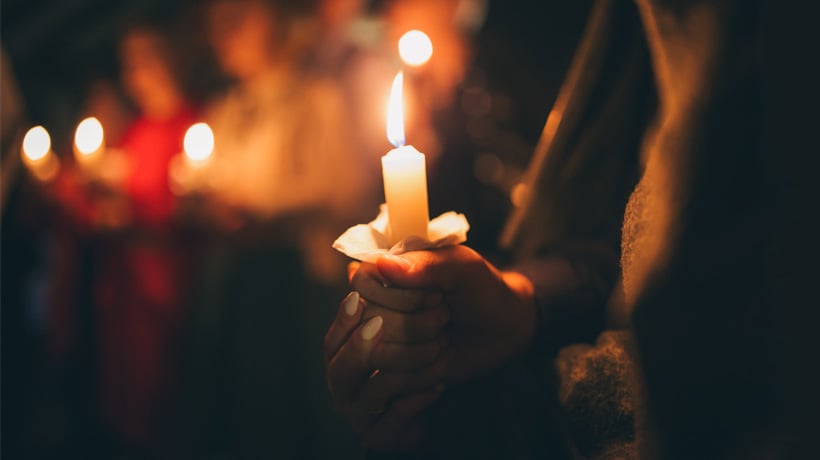We may not always understand why they happen, but psychologists do understand that mass shootings affect victims, survivors, local communities, and even strangers who read their stories.
News organizations and research groups vary slightly in their definitions of a “mass shooting,” but most usually define it as an incident with four or more people shot in one location at approximately the same time.
In the United States, there have been more than 250 mass shootings and over 1,000 casualties in 2019 so far, according to statistics compiled by the nonprofit Gun Violence Archive. While there are several other causes of death that are more common, the shock of gun violence can traumatize survivors and the communities at the site of the mass shooting.
Moreover, the frequency of mass shootings and the accessibility of news stories increase concern among the general public. After several prominent school shootings in the past few years, a 2018 Gallup poll says 35% of American parents are concerned for their children’s safety at school. The same poll says 20% of children have told their parents they feel unsafe at school – the highest percentage since 2001.
Most people experience three stages of healing after a shooting, according to the Substance Abuse and Mental Health Services Administration (SAMHSA). These stages include:
- Acute phase: In the first few days or even weeks after a shooting, people might feel denial, shock, and disbelief in this stage. SAMHSA strongly recommends using mental health professionals to offer support in a process called psychological first aid.
- Intermediate phase: SAMHSA associates signs such as fear, anger, anxiety, transient panic, retaliatory attacks, difficulty paying attention at work or school, depressed feelings, and disturbed sleep during this phase.
- Long-term phase: Characterized by coming to terms with realities with alternate periods of adjustment and relapse. This is the period when untreated behavioral health reactions might solidify into illnesses that would need specialized mental health or substance use disorder-related attention.
Counselors, therapists, and other mental health professionals can provide the best tools to help people recover after a traumatic incident. However, the American Psychological Association (APA) and the American Counseling Association have shared these recommendations for anyone affected by a mass shooting.
Just talk
Ask for help from people who care about you or may have shared your experience. Even if they may not know what to say, the APA says talking to someone who will really listen to you can be comforting.
Listen to your own feelings
There may be a whole range of emotions after a traumatic incident, and there’s no one correct way to grieve. Be patient with yourself and acknowledge your emotions.
Limit media time
Overexposure to news coverage of the shooting – or of similar incidents – can increase acute stress and posttraumatic symptoms. Although many survivors may want to stay informed, seeing distressing images may trigger feelings of pain and helplessness. Try to take a break from the Internet and other media, or else ask if a friend will help you process the news together.
Take care of yourself
Eating well-balanced meals, getting enough sleep, and incorporating physical activity can help with stress management. A counselor can help victims find breathing exercises and other relaxation techniques to help them wind down and sleep better.
Help others who are grieving
Recognize signs of grief in other survivors or friends and family members of victims. These may include changes in sleeping habits, mood, or energy levels. Offer to listen to those victims when they want to talk and connect them with resources in the community. The APA says helping someone else often has the benefit of making you feel better, too. This article shares information provided by organizations that represent licensed psychologists. However, we aren’t equipped to offer individualized counseling. We recommend seeking help from a local grief counselor whenever possible.
Sources:
https://www.gunviolencearchive.org/query/0484b316-f676-44bc-97ed-ecefeabae077/map?year=2019
https://www.samhsa.gov/sites/default/files/dtac/srb-mass-violence-behavioral-health.pdf
https://www.apa.org/monitor/2018/09/survivors
https://www.counseling.org/knowledge-center/coping-in-the-aftermath-of-a-shooting
https://www.cstsonline.org/assets/media/documents/CSTS_FS_Coping_with_Stress_Following_Mass_Shooting.pdf
https://www.apa.org/helpcenter/mass-shooting
https://www.cmhnetwork.org/wp-content/uploads/2018/09/The-Mental-Health-Consequences-of-Mass-Shootings.pdf
https://news.gallup.com/poll/241625/parents-children-fearful-safety-school.aspx?_ga=2.206164499.145324081.1565624838-718983944.1563983201
https://www.apa.org/monitor/2018/09/survivors?_ga=2.206164499.145324081.1565624838-718983944.1563983201
https://www.nctsn.org/treatments-and-practices/psychological-first-aid-and-skills-for-psychological-recovery/about-pfa



